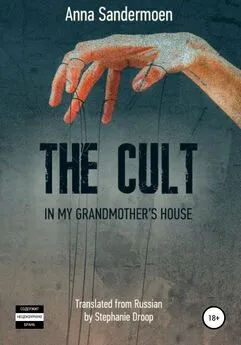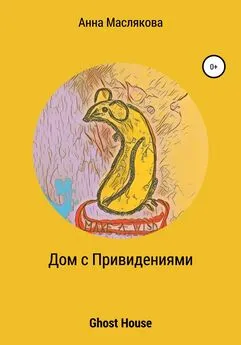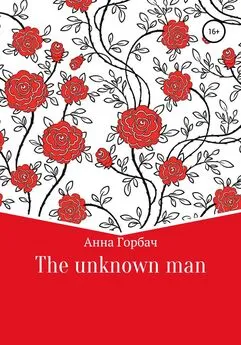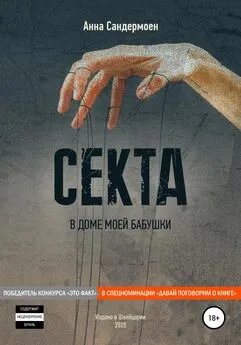Анна Сандермоен - The Cult in my Grandmother's House
- Название:The Cult in my Grandmother's House
- Автор:
- Жанр:
- Издательство:Литагент Selfpub.ru (неискл)
- Год:2021
- ISBN:нет данных
- Рейтинг:
- Избранное:Добавить в избранное
-
Отзывы:
-
Ваша оценка:
Анна Сандермоен - The Cult in my Grandmother's House краткое содержание
The Cult in my Grandmother's House - читать онлайн бесплатно ознакомительный отрывок
Интервал:
Закладка:
It was mainly women who became clients of the cult. If you were very lucky, you might even get impregnated, and then you’d have the chance to bring a psychologically healthy child into the world – since the Chief was the only healthy person in the world, his seed was healthy too. Thus the Chief came to father many children. Thank goodness I was only a child, so personally no one touched me in that way. That was a rare piece of luck.
The speeches were accompanied by procedures. The patient was first tested for levels of aggression and tension, then evidence was collected, to investigate the brain and its potential, its stronger and weaker areas (to this day I remember the terms: the frontal, temporal, parietal and occipital lobes); and finally chloroethane was dripped on or electric shocks were applied to various parts of your body to act on your brain. In some ways it seems similar to acupuncture. The expected effect was that the treatment would help you become kinder and more relaxed, free of the negative thought patterns that gave rise to illnesses like cancer and tuberculosis, among others.
The cult found a psychosomatic explanation for absolutely any ailment, offering to solve the problem through psychotherapy and chloroethane. For example, the psychosomatic effect of cancer was a loss of faith, as well as deep hopelessness and despair. So if someone got cancer, they’d be asked, “Well, why are you such a wimp?”. Basically any psychotherapy began with these words.
I myself thought like this for many years, until I moved to Switzerland. Here many problems that in Russia had seemed insoluble – because I never managed to “get rid of the aggression causing the illness” – are solved simply by judiciously applying the right medicine or surgical intervention.
In the cult there was another important condition for treatment: the person had to ask for treatment themselves. They had to beg, preferably on their knees. This meant they were already broken, had lost all hope, and would therefore agree to any conditions. All that remained was to restructure their personality. I was a frequent witness of how the educational psychologists would wait until the patient had reached the condition they needed to condescendingly offer their help. Nobody saw this approach as inhumane; on the contrary, it was one of the main elements of the method.
If someone was close to death, the idea was that treatment would only be effective in one situation: if the person themselves came and asked for help. The fact that a dying person was physically unable to do that was explained as unwillingness to change in order to live. In other words, it was a personal and conscious choice.
For example, this is how Natalya Sergeevna Karapetova, who had several children by Stolbun, passed away. My grandmother, Dina Mikhailovna Chedia, also died like this.
WHY “CHIEF”?
I want to explain why I prefer not to call the Chief by name.
Firstly, I can’t bring myself to say his name. He doesn’t deserve that honour.
Secondly, the Chief is a manifestation of the extreme narcissism and immorality that is enabled by absolute impunity. Unfortunately, there are many people like him on the planet. I write not about him as an isolated case, but about the situation as typical. It’s not important what he was called or who he was personally. What is important is the occurrence itself, and what effect it had on specific people such as myself.
These memoirs do contain the real names of many adults. I consider them the Chief’s accomplices, real accessories to the crime. They took sides with him and so proved themselves corrupt and rotten. They are criminals too.
THE PRINCIPLES BY WHICH WE WERE RAISED
The biggest mistake most parents make, according to the Chief, is spoiling their children. Coddling delays development of the brain and so the child becomes sluggish, passive and dependent, with weak cognitive faculties like imagination and memory. Families with an over-solicitious parenting style only produce spoilt, capricious children with pretentious behaviour. Smothering children causes psychological problems, followed by physical ailments. Children need to be given as much independence and freedom of choice as possible. Parents need to ensure the family has a congenial psychological atmosphere, with goodwill and “pure relations” between the sexes.
Another problem arising from over-parenting is overfeeding, or allowing regular overeating. Spoilt children will stuff themselves silly.
The Chief also often railed against philistinism as the dominant value system, symbolised by hot water and an orderly house. In these sorts of families children grow up as stupid bourgeoisie, concerned only with achieving material comfort.
Relations between parents and children also needed serious correction. Parents who talk down to their children hamper their development. If they don’t treat the child as an equal but only wield their authority and power, then it humiliates the child and lowers his self esteem so he can’t develop freely. The whole idea was that all childhood illnesses are the direct result of attention seeking. When children demand care and attention they “throw their toys out the pram”, thus feeding their egocentrism. This is the only reason children ever fall ill.
MESSAGES
Children who came to the collective had to be isolated from their parents. This was considered necessary to break them out of their familiar environment and show them a different system of relationships.
Meetings with parents were only allowed very rarely and under strict supervision. Letters were also strictly regulated. We were supposed to bring any letters to be checked by the educators, and letters from parents were always opened before we got them. Sometimes we never received them at all. Letters were known as messages. We weren’t meant to have time for letters: we were busy fighting our good fight, so why would we need letters? However, we were encouraged to write postcards to our parents on public holidays (the anniversary of the October revolution, Victory Day, International Women’s Day, Defenders of the Fatherland day, New Year). We didn’t really celebrate birthdays – that would have been way too individualistic. Any cards we did write were formulaic: “Dear mum! I am glad to be here in the collective with my friends and companions, and to be fighting together for our dedicated cause”, and so on.
It would never enter anyone’s head to use the normal postal service. Outside was all a conspiracy; besides, we never had any money for stamps or envelopes. So any messages had to wait for the right opportunity and could only be passed on personally by our members.
I have kept a few letters from that time. None have envelopes: they are almost all just folded notes with the recipient’s name on the back. Some are reproduced as pictures in this book. You can infer a lot from them: the values we lived by, the principles we followed, even the air we breathed.

I always preserved my grandmother’s messages with special care. By some miracle I still have a postcard I wrote her. I probably wrote it in the third class when I mastered joined-up writing, but apparently I didn’t give it to her, probably because of all the inkblots. I kept it to myself, safe in my “box of treasures” (the only personal item I was allowed). It is particularly telling how I don’t know how to address her: I started off with a pet name and crossed it out, I swivel between the familiar and formal forms of “you”, and even exhort her to “be mother” (sic).
Grandma Dina! With all my heart I congratulate you on Victory Day! Many thanks that you sent me such warmth and soul. Many thanks that you will never forsake me in a difficult time and will always come to my aid, like a true friend. Thank you. I hope you will always be just as kind, tender, warm and mother.
Many kisses. Till we meet.
From your granddaughter Ania Chedia.

GRANDMA
My grandmother was an emotional and impressionable character. She was famous in academic circles as an excellent researcher and educator, and her students worshipped her. This clever and vivacious woman, so capable of independent thought and picking things up on the fly, was so zombified by Soviet propaganda that she turned out unable to filter information in favour of common sense.
The reason for my time in the cult had basically been pulled out of thin air.
Grandma had been born under a dictatorship and was exiled to central Asia. She had passed through fire and water, like everyone in those days, especially women. Giving birth in such unsanitary conditions was hellish. Dushanbe had grown out of semi-nomadic settlements so you can barely imagine the state of its medical facilities. In what passed for maternity wards you couldn’t even see the walls and ceiling, so covered were they with blood and flies. Grandma had given birth to my mother in Leningrad, but my uncle (mother’s brother) was born three years later in Dushanbe. Soon after birth he fell ill with polio, hardly surprising in those conditions. The whole family nursed Kotka, as he was affectionately known, from a spoon and dropper, and he miraculously survived. Since then he obviously occupied a special place in the family’s affections. When Kotka reached legal adulthood, Grandma decided there was something wrong with him, either because the Chief she had not long met put the idea in her head, or because there really was something strange about him. As I’ve mentioned before, in those times it was just not done to be out of the ordinary. Carmen and Don Jose only existed on the stage.
And my uncle was crazy for the stage: he graduated from the conservatory, where he had studied to be an opera director. But it was easier to declare eccentricity a mental deviation than to accept it or adapt to it. In those days, in that country, no one knew what it was or how to appreciate it.
This is precisely why operas were so popular – it was how Homo sovieticus achieved sublimation.
Grandma was a willful woman who had power over her son, and she assigned him to the collective for treatment. Elated by the idea of a panacea, she devoted her whole life to it. For in Dushanbe – this remote place on the border with Afghanistan; where there was nothing apart from hills, semi-nomadic settlements moulded from dung, and latrines where the only thing to wipe your backside with was a stone or your hand, which you then wiped on the wall; where to be female was shameful in itself; where the only chance to chat with other Russian-speakers was limited to a couple of opera trips in a year – had suddenly appeared a messiah from Moscow.
Yes, the Chief was from Moscow, with an apartment address on the prestigious Kotelnicheskaya embankment. He came with two daughters from his previous marriage, Katya and Yulia, his wife Valentina who was his faithful companion, and also two sons from his previous marriage, Vladimir and Andrei. And trailing after this gang came a flock of about 30 people known as the collective. All of them had left their homes and apartments and had come roaming over the whole USSR in search of refuge and new patients to treat. Blood-sucking parasites in search of a warm body to burrow into.
Grandma was glad to feel part of something bigger than herself, a mission to save humanity. Her apartment and all her meagre possessions fell to the disposal of the collective. As someone with influence, known over the whole of Tajikistan, Grandma immediately brought new people and resources to support the collective in its work.
Читать дальшеИнтервал:
Закладка:










